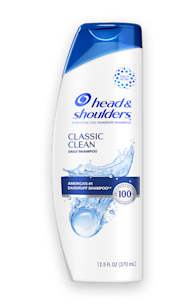DANDRUFF SYMPTOMS EXPLAINED

Whenever you find flakes in your hair, it’s common to assume dandruff is the culprit – and in many cases it probably is. But if depending on your symptoms, there might be something else to blame.
If you have an itchy scalp, dry scalp or flaky scalp, it’s easy to jump to the conclusion of dandruff.
But dandruff symptoms are actually similar to symptoms of another scalp condition called seborrheic dermatitis.
Seborrheic dermatitis is a more extreme form of dandruff, both caused by the same microbe, called Malassezia globosa. People who suffer from seborrheic dermatitis are extra-sensitive to the irritating substances that the microbe creates meaning itchy scalp and other symptoms are amplified.
How to know the difference
So, what are the signs it’s something more than simply dandruff? Look out for a flaky scalp. The flakes will be attached to the scalp and look like yellowish scales that may feel oily to the touch. You might notice inflamed and red patches from dry scalp, and the same symptoms may also crop up on your face, chest or back.
Seborrheic dermatitis and scalp health is affected by a string of factors – including stress, genetics, cold, dry weather, a reaction to medicines or some medical conditions – all of which can worsen its symptoms.
If you’re confused wondering if it’s seborrheic dermatitis or dandruff symptoms you can start by trying a powerful dandruff shampoo. Head & Shoulders Clinically Proven Solutions shampoo features 1% Selenium Sulfide, which will tackle even the most persistent cases of flaky scalp and offer relief from itchy scalp and dry scalp, too. If it's dandruff, then flakes should vanish within three weeks. If symptoms persist, then you may need to visit your doctor to discuss treatment options.




